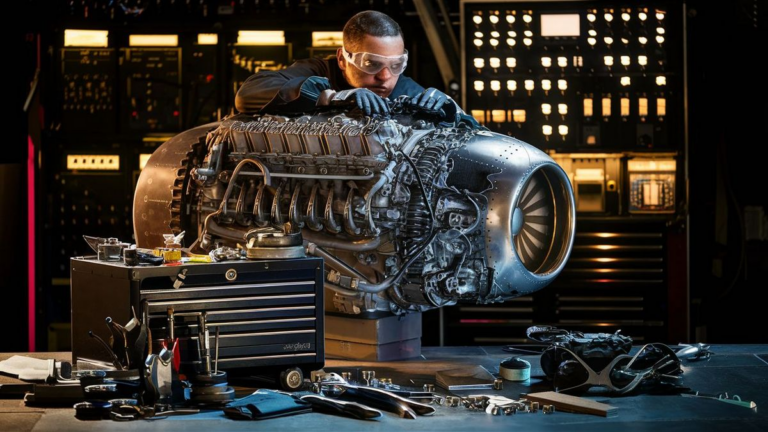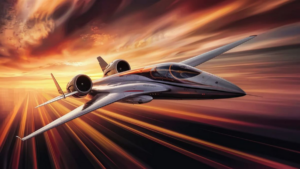Becoming an aircraft mechanic is an exciting career path that requires dedication, skill, and a passion for aviation. Aircraft mechanics play a critical role in ensuring the safety and reliability of aircraft, making it a rewarding profession for those with a keen interest in aviation engineering.
Education and Training
One of the first steps to becoming an aircraft mechanic is obtaining the necessary education and training. While a high school diploma is typically the minimum requirement, many aspiring mechanics choose to pursue further education through vocational or technical schools, community colleges, or aviation maintenance programs.
These programs often provide hands-on training and coursework in subjects such as aircraft systems, avionics, and maintenance procedures. Additionally, obtaining a certification from the Federal Aviation Administration (FAA) is essential for aspiring aircraft mechanics. This certification demonstrates competency in aircraft maintenance and repair, and it is required by law for anyone working on aircraft in the United States.
Gain Experience
After completing the necessary education and obtaining FAA certification, gaining practical experience is crucial for aspiring aircraft mechanics. Many mechanics begin their careers as apprentices or entry-level technicians, working under the supervision of experienced professionals.
During this time, aspiring mechanics have the opportunity to gain hands-on experience with different types of aircraft, develop their troubleshooting skills, and learn about various maintenance procedures. Additionally, seeking out opportunities for on-the-job training and continuing education can further enhance a mechanic’s skills and knowledge in the field.
Specialize
As aircraft technology continues to evolve, specialization has become increasingly important in the field of aircraft maintenance. Mechanics may choose to specialize in specific types of aircraft, such as commercial airliners, helicopters, or military aircraft, or focus on particular systems or components, such as engines, avionics, or airframes.
By specializing in a particular area, mechanics can become experts in their chosen field and increase their value to employers. Additionally, obtaining additional certifications or endorsements related to their chosen specialization can further demonstrate expertise and proficiency.
Stay Current
Continuous learning and staying current with industry trends and advancements are essential for aircraft mechanics to remain competitive in the field. Technology is constantly evolving, and new aircraft systems and maintenance techniques are regularly introduced.
Attending workshops, seminars, and training programs can help mechanics stay abreast of these changes and ensure they have the skills and knowledge necessary to perform their jobs effectively. Additionally, maintaining FAA certification requires mechanics to stay up-to-date on regulations and safety standards.
Becoming an aircraft mechanic requires a combination of education, training, and experience. By following these steps and staying committed to continuous learning and improvement, aspiring mechanics can embark on a rewarding career in aviation maintenance.
Frequently Asked Questions
Here are some frequently asked questions about becoming an aircraft mechanic:
| Question | Answer |
|---|---|
| Is a high school diploma sufficient to become an aircraft mechanic? | A high school diploma is typically the minimum requirement, but further education and FAA certification are also necessary. |
| What kind of experience do I need? | Practical experience, gained through apprenticeships or entry-level positions, is crucial. Seek opportunities to work with different aircraft types to broaden your skills. |
| How can I specialize in a specific area? | Consider focusing on particular types of aircraft, systems, or components. Additional certifications or endorsements can also help demonstrate expertise in your chosen specialization. |
| Why is staying current important? | Continuous learning ensures you remain competitive in the field and capable of handling new technologies and advancements in aircraft maintenance. |
Advancements in Aircraft Technology
With the rapid advancements in aircraft technology, staying updated with the latest trends and innovations is crucial for aircraft mechanics. New systems, materials, and maintenance techniques are continually being introduced, requiring mechanics to adapt and learn.
Job Outlook and Salary
The job outlook for aircraft mechanics is generally favorable, with a steady demand for skilled professionals in the aviation industry. Salaries can vary based on factors such as experience, specialization, and location, but aircraft mechanics typically earn competitive wages.
See also:






